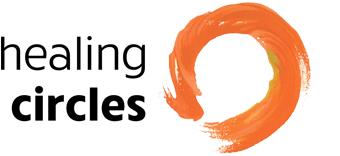Healing Circles and Existential Issues
Sometimes the topics brought up during our healing circles feel dizzying in their scope and make me wonder: Is there anything that is not fair game? Not really, because when we open the spaces for an exploration of the internal landscape, we find mountains to climb, tundras to slug through, beaches to revel on, and oceans to dive into.
The circle agreements provide us with a procedural map, but to date, we have not identified a topical map.
My recent reading of Irvin Yalom’s memoir, Becoming Myself, made me wonder if the quest to more authentically become oneself is the common denominator underlying all healing circles. Yalom’s map consists of an exploration of existential issues, believed to underlie all human experience: life, death, and anxiety; freedom; and isolation and meaninglessness.
The first cluster: life, death, and anxiety, addresses the idiosyncratic yet common cultural belief that everybody will die but ourselves. By reminding us that the seed of death is in all life, and by normalizing the fear of death, we can feel oddly reassured. We don’t have to take the certainty of death personally: It will happen to all of us. Death may separate us because we must all die our own death, but it also connects us because nobody will escape the experience.
The second issue: freedom, can be experienced as both liberating and terrifying. Sometimes I think that healing circles are about helping us get more comfortable with both. Somebody who comes to a circle feeling depressed and hopeless may experience an unexpected opening and a new sense of freedom, choice, and opportunity. Somebody who feels lost in too many choices may experience the container of the circle as a reassuring boundary.
Circle work is conceived as the antidote to isolation. And yet, it is helpful to remember that isolation or loneliness won’t be eliminated from the repertoire of human experience. Connection and support offer relief, but not eradication. Thus, it is good to note that circles have not failed if participants tap into an experience of the existential condition of isolation now and again—that is normal.
Finally, the matter of meaning. Social science literature has pointed out time and again that people who have developed a sense of meaning and purpose in their lives live longer and are happier. This is not to say that there is an underlying, existential meaning to human life per se. But those of us who have managed to create personal or transpersonal meanings feel more securely anchored and less tossed about in the potentially stormy seas of relativity, nihilism, or determinism.
Yalom has become more himself because of his lifelong work on existential issues. Maybe those of us engaged in the work with Healing Circles will become more ourselves by traversing this terrain with the map of existential issues in our pockets.




